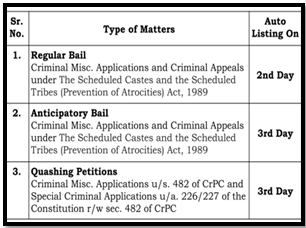SUPREME COURT LIMITS HIGH COURTS’ AUTHORITY TO STAY BAIL
Why in the news?
- The Supreme Court criticised the frequent use of bail stays by higher courts, emphasising the threat to personal liberty and due process.
- Justice A.S. Oka and Justice Ujjal Bhuyan highlighted the shocking trend of staying reasoned bail orders from trial courts.
Source:medium
About Bail:
- Origin: Old French verb ‘bailer’ meaning ‘to give’ or ‘to deliver’.
- Definition: Provisional release of an accused in a criminal case before judgement.
- Security: Deposit to ensure the accused’s release.
India’s Law on Bail:
- The CrPC does not define “bail” but classifies offences as bailable or non-bailable.
- Magistrates can grant bail for bailable offences by right.
- For non-bailable offences, magistrates determine bail eligibility.
- Section 436: Bailable offence bail
- Section 437: Non-bailable offence bail discretion.
Types of Bail in India
Conditions for Bail:
Key Facts about Crpc:
Associated Article: https://universalinstitutions.com/the-battle-over-judicial-autonomy-and-executive-overreach/ |




